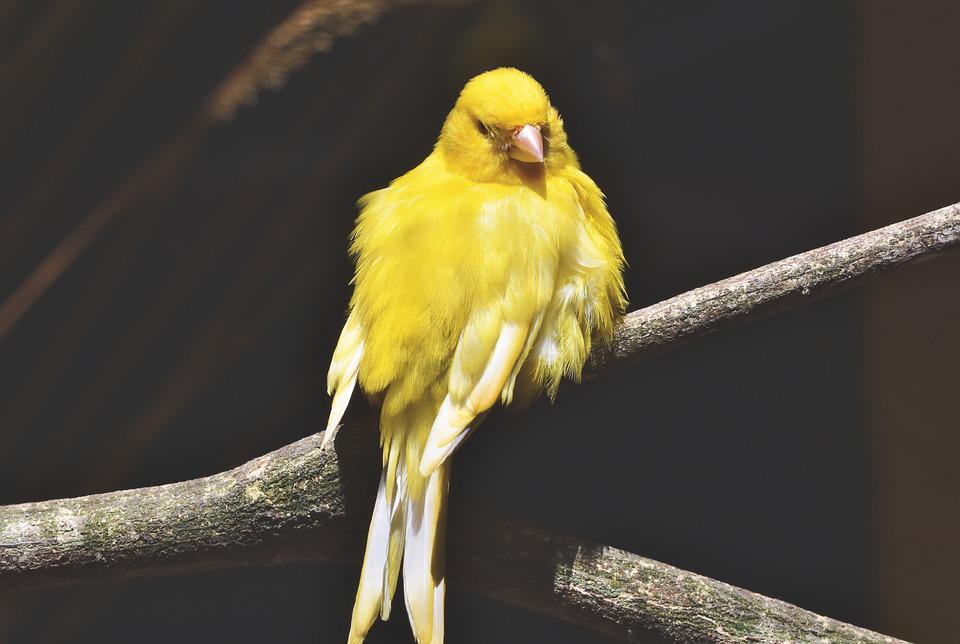
canary
This veggie is not appreciated by many. But for birds, it is an exception. Canaries love to eat broccoli, and it greatly improves their overall health.
As with all foods, there are a few things to consider before incorporating broccoli into an animal’s diet. Read on to learn all about its benefits, amounts, and how to serve it.
Nutritional Composition of Broccoli
Let’s start with the nutritional composition of this vegetable. This information will help you determine how much to include in your bird’s diet.
- Energy: 34 calories.
- Water: 89.3 g.
- Protein: 2,82 g.
- Fat: 0,37 g.
- 6,64 grams of carbohydrates, of which 1,7 grams are sugars.
- Dietary fiber: 2,6 g.
- Broccoli hasiron (0,73 mg) calcium (47 mg), magnesium (21 mg), phosphorus (66 mg), manganese (0,21 mg), zinc (0,41 mg) and potassium (316 mg).
Vitamins
This vegetable is rich in all types of vitamins. It contains vitamin A, beta-carotene, vitamin C, thiamin, riboflavin, niacin, pantothenic acid, vitamin B6, folic acid, vitamin E, and vitamin K.
Benefits of Broccoli for Canaries
For those unfamiliar with the nutritional composition of broccoli, its ingredients do not provide a very clear understanding of its benefits. So, here is a simplified version of the main benefits of canary.
Fight Infections and Viruses
Broccoli is high in quercetin and kaempferol. These two flavonoid compounds have anti-inflammatory, antibiotic, antiviral, cardioprotective, and antidepressant properties. In canaries, these substances effectively combat corybacillosis, chronic respiratory diseases, and gout.
Improved Reproductive Health
Broccoli provides folic acid (vitamin B9), a nutrient essential for DNA formation, muscle tissue development, and cell regeneration. Female canaries benefit significantly from their intake, as it helps them lay eggs and prevents fetal malformations.
Appearance and Physical Resistance
Broccoli contains high levels of vitamins and minerals, and consumption of this vegetable positively affects the canary’s overall appearance by making it more active, stronger, and its feathers more vibrant.
Strengthens the Immune System
The fiber, minerals, and vitamins in broccoli are vital for reinforcing the canary’s innate defense system.
Improves Digestion and Intestinal Transit
The high fiber content in broccoli also helps prevent constipation and other gastrointestinal disorders.
Prevents Chronic and Degenerative Diseases
The flavonoids from this vegetable are antioxidants and are vital in fighting free radicals in the bloodstream. Free radicals damage cells and accelerate tissue degeneration.
As such, practically everything about broccoli is suitable for canaries. But it is also crucial to be aware of the amount of broccoli a bird can eat. Here are some general guidelines:
About the Amount
There is no standard feeding amount for all canaries. The required amount may vary by time of year, the bird’s health, and its weight.
At most broccoli should be fed every other day. If a female canary is laying eggs, she may need it daily. It should also be given daily if the canary is hypovitaminosis or lacking in the minerals found in broccoli.
Consult your veterinarian if you are unsure about how much broccoli to feed. You can work together to formulate a personalized diet plan.
This vegetable is ideally eaten raw, as nearly 80% of its mineral content is lost when heated. Broccoli’s tree-like shape makes it suitable for birds to nibble on, but if they don’t like it, one option is to grate broccoli and mix it into their regular food. In this case, wash the broccoli thoroughly before feeding it to the bird.
Also, steaming broccoli helps to preserve its better components. Additionally, steamed broccoli is easier to mash and can be served to canaries this way. This cooking method also works well for chicks and older birds.

Let us know if you tried feeding your canary broccoli and share their experience with us in the comments below!







